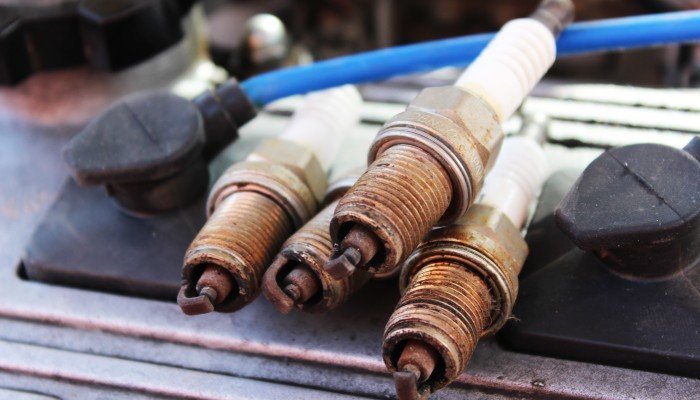Other than pistons, transmissions and tires; spark plugs are word-harking components and they need to produce sparks thousands of times each minute. Due to this reason, our spark plugs could be affected by problems. As an example, our plugs could have overheating problem and it’s indicated by worn off electrodes and blisters on the insulator. If the overheating problem isn’t addressed immediately, the plug life can be shortened quickly. In this case, the spark plugs should be checked for over-advance ignition timing, improper heat range, wrong fuel mixture, sticking valve and leaks on the intake manifold vacuum. It is also important to make sure that we have correct coolant level and the radiator isn’t clogged.
Spark plugs can be called worn out if the electrodes have become rounded. If it happens, we could have poor fuel economy, as well as ignition problems in damp and cold weather. In this case, we should be able to fix the problems by changing the plugs with a new one. Another problem that could affect spark plugs is detonation and it happens when insulators have been cracked or chipped. This could result in improper timing and piston damage could ensue. The problem can be improved if we have use fuel with proper anti-knock values based on the engine requirements. When setting the gaps of the spark plugs, we should take extreme caution. It’s also important to avoid lugging our engines.
Preignition is another problem that’s caused by melting electrodes. This is indicated by insulators that look whitish and dirty. In this case, misfires may happen and that could cause engine degradation. We should check the car for lack of lubrication, overly lean fuel mixture, clogged cooling system, improper heat range and over-advanced ignition timing. We have high speed glazing problem when the insulator seems to have glazed appearance. During hard acceleration, the temperature of the combustion chamber can be much higher and the deposits could actually melt. This result in a coating with conductive property and in turn, misfires could happen at high speed. If our driving involve higher speed on highways, it is warranted to install new plugs, especially the colder models.
Spark plugs could also be oil fouled when the engine experiences long period of misfires. The vibration will loosen up the deposits and when the engine is revved at higher rpm, the deposits could flake off and thrown off against the insulator. This will cause further misfires, compounding the original problem. The solution would be to replace the spark plugs with new ones.

